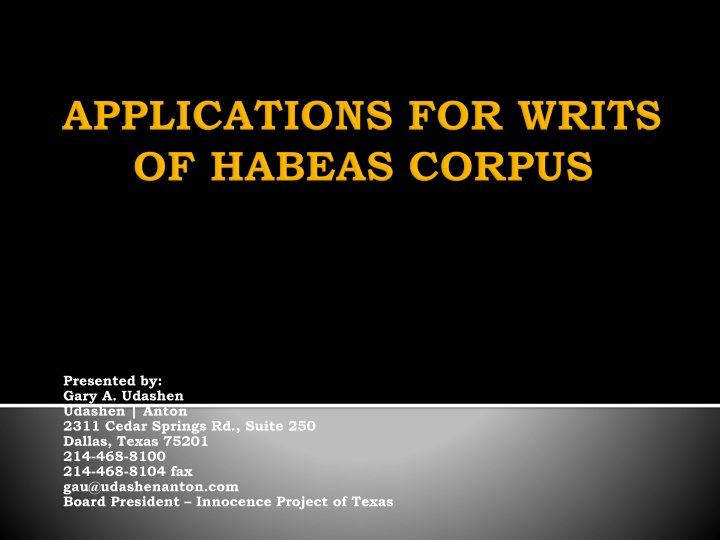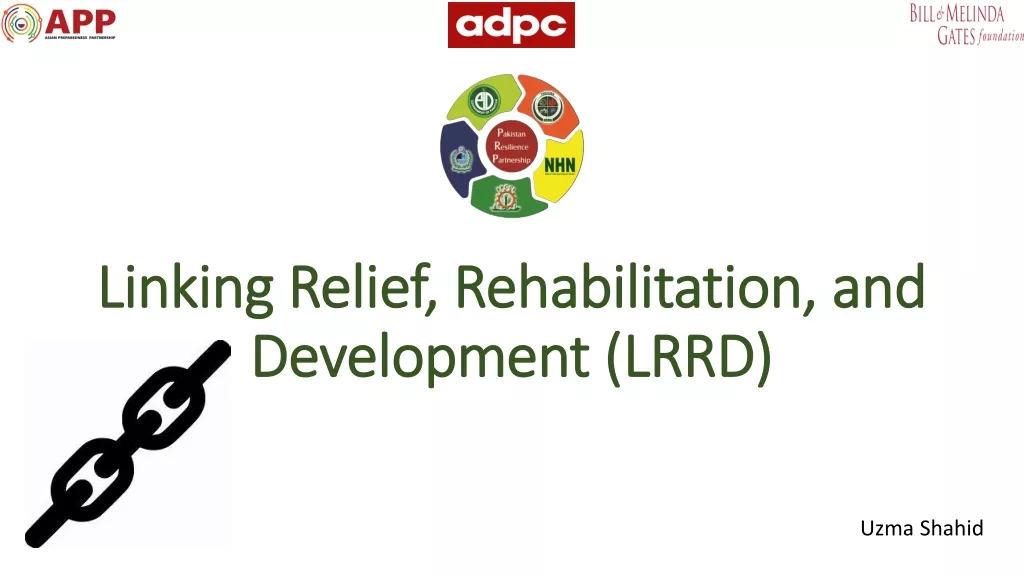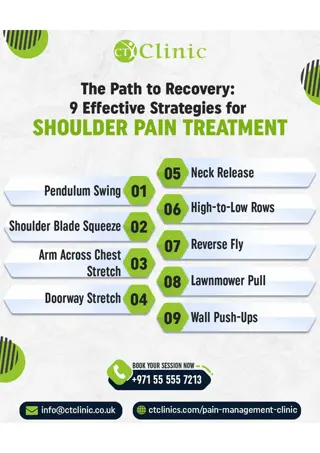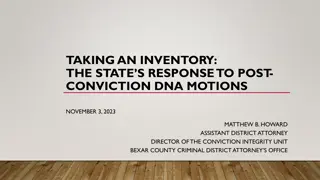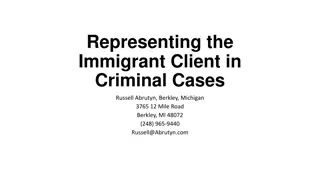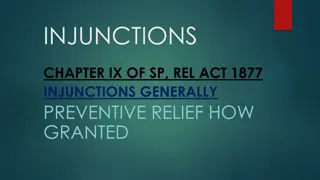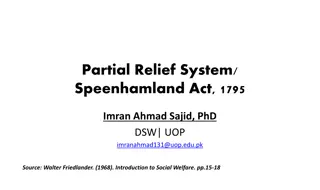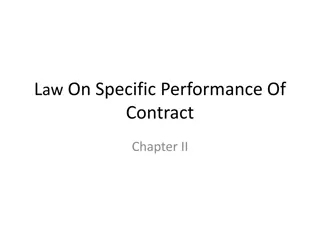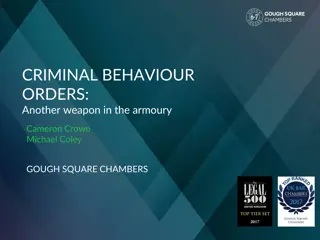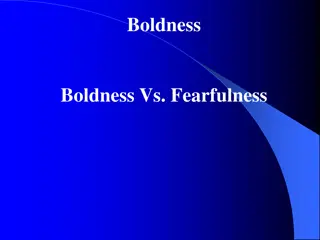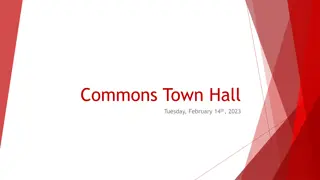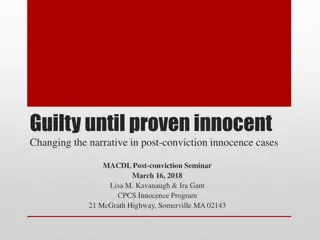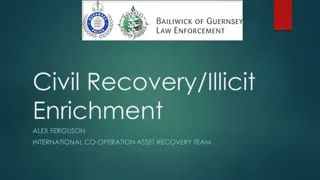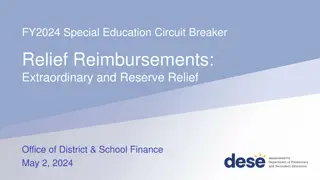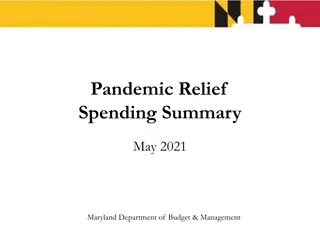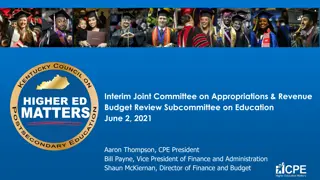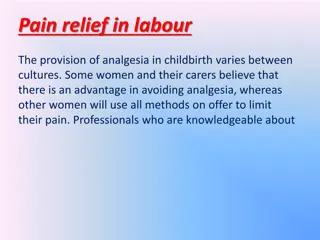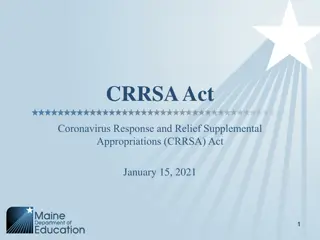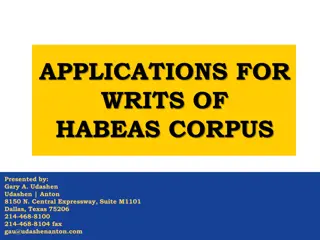Legal Process for Seeking Relief from Final Felony Conviction
The legal process for seeking relief from a final felony conviction involves steps such as the state answering within 15 days, the district court deciding on unresolved facts, resolving issues through affidavits and hearings, and transmitting findings to the Court of Criminal Appeals. The Court of Criminal Appeals may grant or deny relief, not bound by district court findings, particularly in cases of ineffective assistance of counsel or other exceptions. Issues could have been raised on direct appeal, and some violations or evidence insufficiencies may not be cognizable.
Download Presentation

Please find below an Image/Link to download the presentation.
The content on the website is provided AS IS for your information and personal use only. It may not be sold, licensed, or shared on other websites without obtaining consent from the author.If you encounter any issues during the download, it is possible that the publisher has removed the file from their server.
You are allowed to download the files provided on this website for personal or commercial use, subject to the condition that they are used lawfully. All files are the property of their respective owners.
The content on the website is provided AS IS for your information and personal use only. It may not be sold, licensed, or shared on other websites without obtaining consent from the author.
E N D
Presentation Transcript
Presented by: Gary A. Udashen Udashen | Anton 2311 Cedar Springs Rd., Suite 250 Dallas, Texas 75201 214-468-8100 214-468-8104 fax gau@udashenanton.com Board President Innocence Project of Texas
Does the Application: Seek Relief From Final Felony Conviction (not probation) Raise Constitutional or Fundamental Errors Allege Confinement or Collateral Consequences Plead Facts, Which, If True, Would Entitle Applicant to Relief
State Has 15 Days To Answer Within 20 Days of Expiration of Time For State s Answer District Court Shall: 1. Decide Whether There Are Controverted, Previously Unresolved Facts Material To Legality of Applicant s Confinement 2. If Yes, Enter An Order Designating Issues To Be Resolved
The Court finds there are controverted, previously unresolved facts material to the legality of applicant s confinement, to wit, whether the applicant received ineffective assistance of counsel. These issues shall be resolved by submission of affidavits and an evidentiary hearing.
Affidavits Depositions Interrogatories Forensic Testing Hearings Personal Recollection
Court Makes This Finding Clerk Sends Application, Answer and Court s Order To Court of Criminal Appeals
District Court Issues Findings of Fact and Conclusions of Law Transmitted to Court of Criminal Appeals Court of Criminal Appeals Grants or Denies Relief Court of Criminal Appeals Not Bound By District Court s Findings and Conclusions Court Will Ordinarily Follow the Findings and Conclusions if Supported By Record
Issue Could Have Been Raised on Direct Appeal Issue Was Decided On Direct Appeal (exception on ineffective assistance) Subsequent Writs 4th Amendment Violation Not Cognizable Insufficiency of Evidence Not Cognizable (no evidence is cognizable)
QUESTIONS: 1. Are there factual questions to be resolved? 2. Does resolution of the factual questions require credibility determinations? 3. Would hearing the witness testify aid the court in making credibility assessment?
SHOULD LAWYER ALWAYS WIN? GALLEGO V. U.S., 174 F.3D 1196 (11TH CIR. 1999): We cannot adopt a per se credit counsel in case of conflict rule where the defendant is going to lose every time. Judge should assess credibility of the lawyer and client testimony. based on their
Ineffective Assistance of Counsel Suppression of Exculpatory Evidence New Evidence Establishing Actual Innocence New Science Perjured Testimony
Strickland v. Washington, 466 U.S. 668 (1984), test requires Applicant to show: 1. Counsel s performance was deficient. Requires showing that counsel made errors so serious that counsel was not functioning as the counsel guaranteed by the Sixth Amendment. 2. The deficient performance prejudiced the defendant.
An appellate court must indulge a strong presumption that counsel s conduct [fell] within the wide range of reasonable professional assistance; that is, the [appellant] must overcome the presumption that under the circumstances, the challenged action might be considered sound trial strategy. Strickland, 466 U.S. at 689
In the absence of evidence of counsels reasons for challenged conduct, an appellate court commonly will assume a strategic motivation if any can possibly be imagined and will not conclude the challenged conduct constituted deficient performance unless the conduct was so outrageous that no competent attorney would have engaged in it. Garcia v. State, 57 S.W.3d 436 (Tex. Crim. App. 2001)
Record must show why counsel took the actions that constitute ineffective assistance. Thompson v. State, 9 S.W.3d 808 (Tex. Crim. App. 1999) Trial counsel must provide affidavit or testimony.
Under our system of justice, the criminal defendant is entitled to an opportunity to explain himself and present evidence on his behalf. His counsel should ordinarily be accorded an opportunity to explain her actions before being condemned as unprofessional and incompetent. Bone v. State, 77 S.W.3d 828, 836 (Tex. Crim. App. 2002)
Appellate court looks to the totality of the representation and the particular circumstances of each case in evaluating the effectiveness of counsel. Thompson v. State, 9 S.W.3d 808, 813 (Tex. Crim. App. 1999) It is possible that a single egregious error of omission or commission by counsel constitutes ineffective assistance. Thompson, 9 S.W.3d 813
Ineffective Assistance of Counsel may (should) be raised for first time on a writ. Ex Parte Torres, 943 S.W.2d 469 (Tex. Crim. App. 1997). Trial record is rarely sufficient to show ineffective assistance.
Must show that but for counsel s errors defendant would not have entered a guilty plea. Hill v. Lockhart, 474 U.S. 52 (1985)
Strickland test applies to plea bargaining stage of trial. Deficient advice concerning plea bargain constitutes ineffective assistance. Defendant must show that he would have accepted the offer, the state would not have withdrawn it and the trial court would have accepted it. Lafler v. Cooper, 566 U. S. 156 (2012) Missouri v. Frye, 566 U.S. 134 (2012) Ex parte Argent, 393 S.W.3d 781 (Tex. Crim. App. 2013)
Failure defendant s entry of guilty plea that he had a viable legal defense that he did not perform an overt act needed to support his conviction constitutes ineffective assistance. to advise defendant prior to State v. Diaz-Bonilla, 495 S.W.3d 45 (Tex. App. Houston [14th Dist.] 2016, pet.ref d)
Counsels misinformation to defendant as to his parole eligibility constituted deficient performance. Ex parte Moussazadeh, 361 S.W.3d 684 (Tex. Crim. App. 2012)
Failure to advise defendant of deportation consequences of conviction is ineffective assistance. Padilla v. Kentucky, 559 U.S. 356 (2010) Prejudice shown from counsel s erroneous advice that guilty plea would not result in deportation when applicant shows he would not have pled guilty had he known he would be deported. Jae Lee v. United States, 137 S.Ct. 1958 (2017)
STRATEGIC DECISIONS ARE BASED ON INVESTIGATION The Supreme Court has made clear that strategic choices made after thorough investigation of law and facts relevant to plausible options are virtually unchallengeable. Strickland, 466 U.S. at 690-91 But when choices are made after less than complete investigation, they are reasonable only to the extent that reasonable professional judgments support the limitations on investigation. Strickland, 466 U.S. at 691. And decisions made out of inattention are not strategic and afforded no deference at all. Wiggins v. Smith, 539 U.S. 510, 526 (2003)
Failure of trial counsel to investigate information that someone else committed the crime is ineffective. Ex Parte Amezquita, 223 S.W.3d 363 (Tex. Crim. App. 2006)
Counsel ineffective for lack of awareness of case holding that, on charge for possession of or attempt to possess controlled substance through use of fraudulent prescription form, State had to prove that defendant presented fraudulent form, not just that defendant committed fraud by interlineating upon otherwise legitimate form. Ex Parte Lewis, 537 S.W.3d 917 (Tex. Crim. App. 2017)
Attorneys rendered ineffective assistance by failing to investigate and present mitigating evidence of defendant being abused as a child in capital murder case. Ex parte Gonzales, 204 S.W.3d 391 (Tex. Crim. App. 2006) Trial counsel s failure to impeach witness with his inconsistent statements, made when he told police that he saw shooter s face but could not make it out, constituted deficient performance. Ex parte Saenz, 491 S.W.3d 819 (Tex. Crim. App. 2016)
Failure to request limiting instruction. Ex parte Varelas, 45 S.W.3d 627 (Tex. Crim. App. 2001) Failure to file application for probation. Ex parte Welch, 981 S.W.2d 183 (Tex. Crim. App. 1998) Failure to request accomplice witness instruction when case based entirely on accomplice testimony. Ex parte Zepeda, 819 S.W.2d 874 (Tex. Crim. App. 1991)
A defendant has the right under Sixth Amendment to insist that counsel refrain from admitting guilt during the guilt-phase of a capital murder trial, even when counsel s view is that confessing guilt offers the defendant the best chance to avoid the death penalty. McCoy v. Louisiana, 138 S.Ct. 1500 (2018)
Retained counsel performed deficiently in limiting, for economic reasons, his investigation of medical evidence before advising client to plead guilty. Ex parte Briggs, 187 S.W.3d 458 (Tex. Crim. App. 2005)
Failure to hire DNA expert in sexual assault and kidnapping prosecution amounted to deficient performance, although counsel consulted other attorneys, doing so was insufficient investigation in this case given the fact that counsel still lacked much understanding of DNA science, and expert testimony likely would have given a boost to the defense beyond what could have been accomplished through cross-examination. (no prejudice found) Ex parte Napper, 322 S.W.3d 202 (Tex. Crim. App. 2010)
Defense teams failure to present physician s expert testimony regarding sodium intoxication constituted ineffective assistance of counsel. Ex parte Overton, 444 S.W.3d 632 (Tex. Crim. App. 2014)
Defense counsel ineffective for failure to request funds to replace an inadequate expert in firearms and toolmark analysis. additional Hinton v. Alabama, 571 U.S. 263 (2014)
Ineffective assistance based on counsels failure to consult concerning sexual methods of interviewing children with abuse an and expert proper Wright v. State, 223 S.W.3d 36 (Tex. App. Houston [14th Dist.] 2016, pet. ref d)
The sentencing process consists of weighing mitigating and aggravating factors, and making adjustments in the severity of the sentence consistent with this calculus. Failure to contact or call to testify twenty character witnesses is ineffective assistance. Milburn v. State, 15 S.W.3d 267 (Tex. App. Houston [14th Dist.] 2000, pet. ref d.)
Failure of counsel to discover evidence showing that the defendant was not at the scene of a crime used as an extraneous offense at punishment phase constitutes ineffective assistance of counsel. Ex parte Rogers, 369 S.W.3d 858 (Tex. Crim. App. 2012)
Trial counsels failure to investigate and discover defendant s history prejudiced defendant at penalty phase of trial; there was reasonable probability of less substantial mitigating available. mental health severe evidence sentence; was Lampkin v. State, 470 S.W.3d 876 (Tex. App. Texarkana 2015, pet. ref d)
Rights to effective assistance applies at Motion for New Trial. Cooks v. State, 240 S.W.3d 906 (Tex. Crim. App. 2007) To prove harm, must present a facially plausible claim that could have been argued in Motion for New Trial but was not. Cooks, 240 S.W.3d at 912
To obtain relief in the form of a new direct appeal on a claim of ineffective assistance of appellate counsel, a habeas applicant must show that (1) counsel s decision not to raise a particular point of error was objectively unreasonable, and (2) there is a reasonable probability that, but for counsel s failure to raise that particular issue, he would have prevailed on appeal. Ex parte Flores, 387 S.W.3d 626 (Tex. Crim. App. 2012)
We now hold that the suppression by the prosecution of evidence favorable to an accused upon request violates due process where the evidence is material either to guilt or to punishment, irrespective of the good faith or bad faith of the prosecution. Brady v. Maryland 373 U.S. 83 (1963)
The prosecution withheld or suppressed evidence. The evidence was favorable to the defense. The evidence was material to either guilt or punishment.
MATERIALITY TEST Evidence qualifies as material when there is any reasonable likelihood it could have affected the judgment of the jury. To prevail on a Brady claim, the applicant need not show that he more likely than not would have been acquitted had the new evidence been admitted. He must show only that the new evidence is sufficient to undermineconfidence in the verdict. Wearry v. Cain, 136 S.Ct. 1002 (2016)
EXCULPATORY EVIDENCE The State has an affirmative duty to disclose evidence favorable and material to a defendant s guilt or punishment under the Due Process Clause of the Fourteenth Amendment. This duty attaches with or without a request for the evidence. When unsure of whether to disclose the evidence, the prosecutor should submit the evidence to the trial judge for his consideration. Thomas v. State 841 S.W.2d 399 (Tex. Crim. App. 1992)
Prosecutor denied having any exculpatory evidence Exculpatory evidence suppressed: Eyewitness (Walker) who said Thomas was not in location where shooting occurred. Prosecutor later testified, I would have brought (Walker s testimony) to the court s attention had I thought it would be exculpatory in any manner. Thomas v. State
EXCULPATORY EVIDENCE Because we agree that the credibility of the State s only eyewitness, Anita Hanson, was crucial issue in applicant s trial, we conclude that the State had constitutional duty Maryland to disclose material evidence that impeached her testimony. an affirmative Brady under v. Ex Parte Richardson 70 S.W.3d 865 (Tex. Crim. App. 2002)
Previous statement from eyewitness that he could not identify the perpetrator is exculpatory evidence when eyewitness identifies defendant in Court. Smith v. Cain, 132 S.Ct. 627 (2012)
Knowledge of government agents, such as police officers, of exculpatory evidence is imputed to the prosecution. Prosecutor has a duty to learn of any favorable evidence known to the others acting in the government s behalf, including the police. Kyles v. Whitley, 514 U.S. 419 (1995)
When reliability of a given witness may well be determinative of guilt or innocence, nondisclosure of immunity deal violates due process. Napue v. Illinois 360 U.S. 264 (1959) Supreme Court has never limited a Brady violation to cases demonstrate that the state and the witness have reached a bona fide, enforceable deal. Lacaze v. Warden, 645 F.3d 728 (5th Cir. 2010) where the facts
Brady applies to agreement which are merely implied, suggested, insinuated or inferred. Question is whether there exists some understanding for leniency. It makes no difference understanding is consummated by a wink, a nod and a handshake, or by a signed and notarized formal document ceremoniously impressed with a wax seal. A deal is a deal. Duggan v. State, 778 S.W.2d 465 (Tex. Crim. App. 1989) whether the
State failed to disclose that, contrary to the prosecution s assertions at trial, Brown had twice sought a deal to reduce his existing sentence in exchange for testifying against Wearry. The police had told Brown that they would talk to the D.A. if he told the truth.
